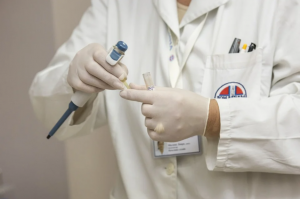Celiac Disease: Everything to Know About It

Celiac disease has a very long history and also several titles. Some called it koiliakos, which comes from the word koelia (Greek for intestine). You can check https://www.santemagazine.fr/sante/maladies/maladies-appareil-digestif/maladie-coeliaque-chez-lenfant-quel-regime-adopter-173482 to read more on this autoimmune disease. It is considered to be an inherited ailment that only occurs when a person ingests gluten. Sadly, there are various stages of gluten intolerance, and not all of them can be confirmed with certainty by current testing methods. Also, two and a half Americans are not treatable, putting them at risk for long-term health problems.
What is Celiac Disease?
 This is a serious autoimmune disease that often runs in families. The consequences of this disease damage to the intestines. Some skin problems, such as dermatitis and psoriasis, also change when gluten is eliminated from the intake. The blemish occurs on the elbows, chest, trunk, buttocks, and knees. Signs and symptoms for adults and children are slightly different. Symptoms for adults may include weight loss, infections, and headaches, hyposplenism (a decreased ability of the spleen to function).
This is a serious autoimmune disease that often runs in families. The consequences of this disease damage to the intestines. Some skin problems, such as dermatitis and psoriasis, also change when gluten is eliminated from the intake. The blemish occurs on the elbows, chest, trunk, buttocks, and knees. Signs and symptoms for adults and children are slightly different. Symptoms for adults may include weight loss, infections, and headaches, hyposplenism (a decreased ability of the spleen to function).
Additional symptoms in children appear to be due to their inability to absorb nutrients and include: lack of growth, weight loss, damage to tooth enamel, and short stature. If left untreated, celiac disease can lead to the development of other autoimmune disorders. Neurological and other disorders that can occur include heart disorder, autoimmune thyroid disorder.
How Do You Alleviate the Symptoms?
 Now there is only one way to control celiac disease, and that is to not consume gluten-free alternatives. This is very important to control the symptoms. This doesn’t just apply to food, because medications, lip balm, vitamins and supplements, hair and skin products, and toothpaste can also contain gluten. It is important to always read the following phrases along with wheat on labels: Emmer, Kamut. Also: barley, rye, triticale, and sometimes oats (naturally fermented, but can be contaminated with wheat, barley, or rye during manufacturing).
Now there is only one way to control celiac disease, and that is to not consume gluten-free alternatives. This is very important to control the symptoms. This doesn’t just apply to food, because medications, lip balm, vitamins and supplements, hair and skin products, and toothpaste can also contain gluten. It is important to always read the following phrases along with wheat on labels: Emmer, Kamut. Also: barley, rye, triticale, and sometimes oats (naturally fermented, but can be contaminated with wheat, barley, or rye during manufacturing).
Carbonated beverages made with natural ingredients such as grapes or juniper berries may be labeled as fermented, other alcoholic beverages may not be safe. Eating at restaurants can also be difficult; tips include eating salads without croutons if oil and vinegar are used for vanity. It may be a good idea to eat at a restaurant when it is less crowded to better assess your needs.
If you live with people who do not have celiac disease, store food separately and keep countertops clean. Refrain from eating foods high in iron, calcium, thiamin, riboflavin, niacin, and folate. Some fermented foods are high in sugar and fat, so reading labels is essential. Your doctor can also provide you with a list of nutrient-rich alternatives. Certainly, fermented foods are very expensive, which can be a problem for most people.
Final Thoughts
If you have celiac disease and can follow a gluten-free diet, you want to enjoy better health, improved gastrointestinal health, and better athletic performance. No doubt following a gluten-free diet will alleviate the signs and you will feel much better.…


